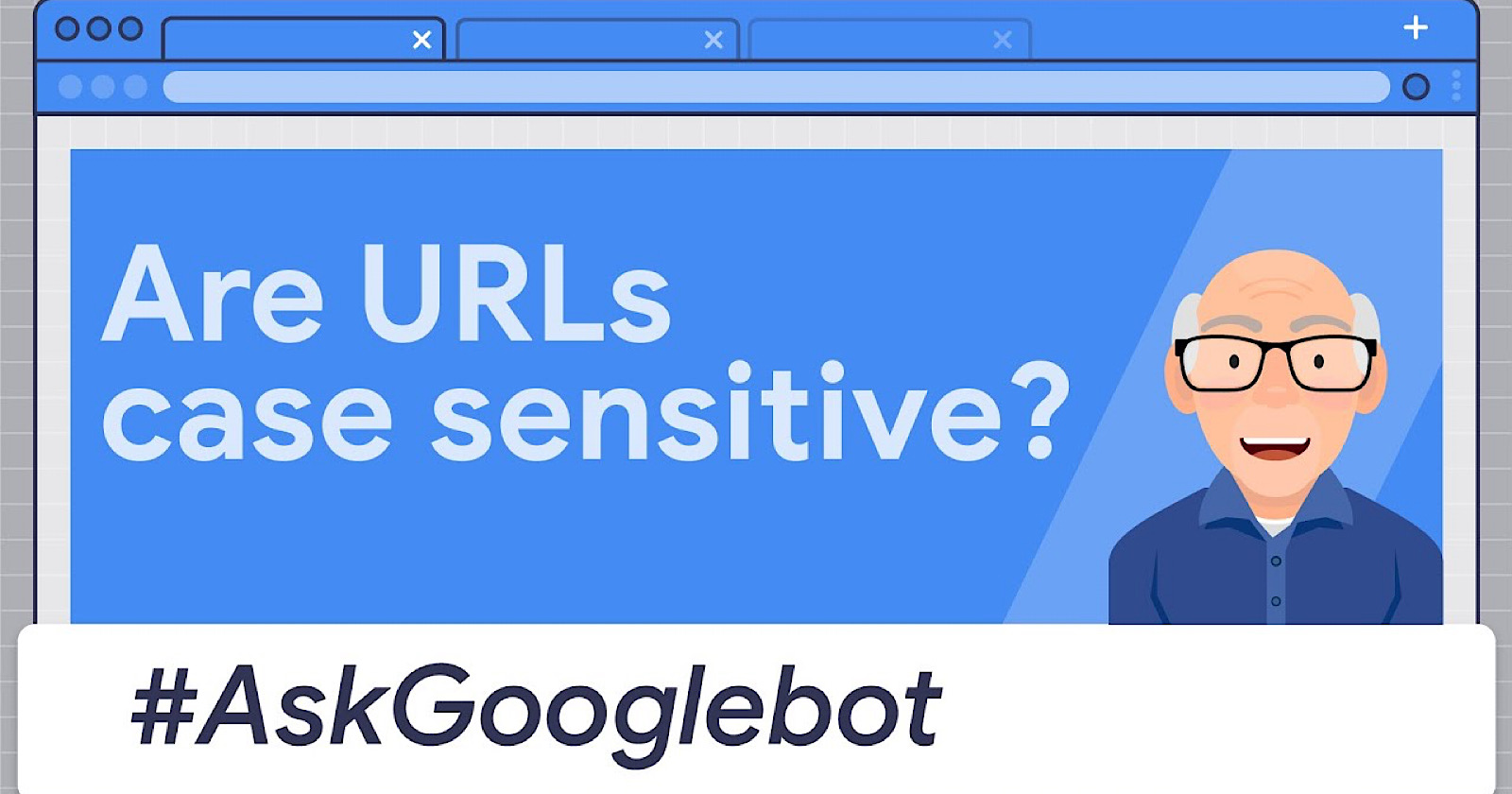Google’s John Mueller clarifies that URLs are case sensitive, so it matters whether the characters are uppercase or lowercase.
Variations in cases can make one URL different from another, similar to how a URL with a trailing slash is different from a URL without the slash.
This topic is addressed in the latest installment of Ask Googlebot on the Google Search Central YouTube channel.
A question is submitted asking whether a website’s rankings can be impacted by the case of the letters in the URL.
Mueller answers the question while also explaining how Google chooses which version of a URL to display in search results.
Do the Cases of Letters in a URL Impact SEO?
The cases of letters in a URL absolutely do matter to Google.
Two URLs could look the same, and even lead to the same content, but they could be treated as different URLs if one has a capital letter and the other doesn’t.
Mueller says:
“By definition, URLs are case sensitive, and also things like slashes at the end do matter. So, technically, yes — these things matter. They make URLs different.”
When Google recognizes there are multiple versions of the same URL, it will try to crawl all of them and figure out which one to show in search results.
Although this is handled automatically, Mueller says it’s not always ideal because it could take longer for Google to discover and index content.
“If a website still shows the same content in these cases, search engines will try to figure it out on their own and usually that works out well. But it’s not always ideal.
For example, search engines will try to crawl all variations of the URL that they find. This can make it a bit slower for them to find other useful content on your website.”
Google initiates a process called canonicalization when it encounters multiple distinct versions of a URL.
It decides which URL to keep in the SERPs, and consolidates all signals from the other versions into that one URL.
The URL that ends up being displayed in search results is known as the canonical URL.
“Also, when search engines find multiple distinct URLs showing the same content they have to decide which of these URLs to keep. We call this canonicalization.
It doesn’t change ranking but our systems might choose a URL that you wouldn’t have chosen.”
Cases of letters in a URL can also play a role in robots.txt, Mueller explains.
“Another place where the exact URL plays a role is robots.txt. In the robots.txt file you can signal which parts of a website shouldn’t be crawled.
The robots.txt file also uses exact URLs, so if you have entries there which refer to one version of a URL they would not apply to other versions of that URL. It’s rare that we see this cause problems though.”
You can signal to Google which version of a URL you want to have shown in search results by linking to that same version consistently.
Using the rel=”canonical” tag will also send Google hints about which version of a URL you prefer to have shown in SERPs.
“Using internal linking to link to a consistent version makes your preference clear. Adding a link rel=”canonical” element also helps to confirm that and encourages search engines to focus on that version.
So, in short, upper or lower case does matter for URLs. It’s a good practice to be consistent in how you use them, but it’s usually not that critical for a website.”
See the full video below:
Featured Image: Screenshot from YouTube.com/GoogleSearchCentral, September 2021.





![AI Overviews: We Reverse-Engineered Them So You Don't Have To [+ What You Need To Do Next]](https://www.searchenginejournal.com/wp-content/uploads/2025/04/sidebar1x-455.png)